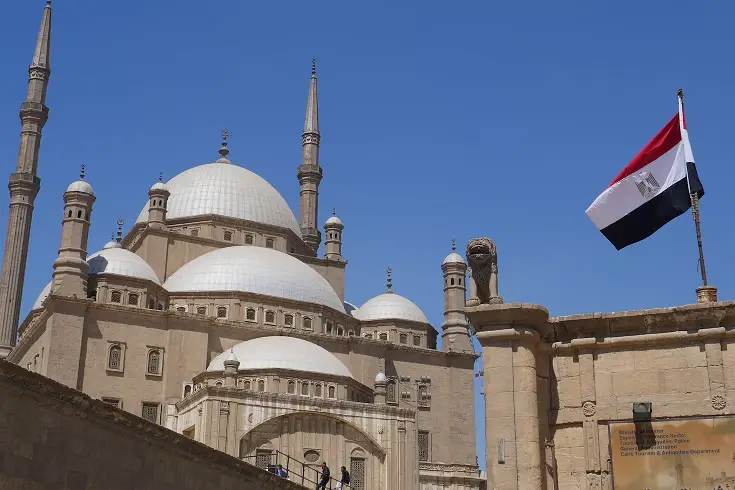As Egypt is caught in a struggle with a severe deficit of hard currency, the country has been downgraded again, for the second time this month.
The nation’s credit worthiness was cut even deeper into junk territory by S&P Global Ratings, which lowered the country’s rating from B to B-, although it maintained a stable outlook. The decision lowered the nation’s status to that of Bolivia, Angola, and Iraq.
The decision comes on the heels of a similar call by Moody’s Investor Service, which in early October lowered Egypt one level to Caa1, setting off a further sell-off in Egyptian bonds. S&P’s rating remains a notch above the rating from Moody’s.
Late Friday, S&P said, “The downgrade reflects the recurring delays to the implementation of monetary and structural reforms,” noting the delays were “exacerbating imbalances in the currency market, deteriorating the net foreign asset position of systemic banks, and delaying critical IMF disbursements and other multi-and bi-lateral financing.”
In April S&P lowered the outlook of Egypt to negative, noting that the risk that the nation’s allies in the wealthy Gulf Arab states would either delay the delivery of funds, or refuse to provide them at all, had increased.
On Friday, it again voiced that concern, noting the Gulf states are now placing greater emphasis on “conditionality and achieving economic returns” when making financial decisions.
Egypt’s finances were hammered last year following the economic fallout from Russia’s invasion of Ukraine, as the nation saw billions of dollars in foreign funds rapidly flow out, leading to a soaring inflation rate.
When it made the downgrade, Moody’s noted that Egypt had, “increasingly constrained” policy options to bring its economy back into balance, without setting off social unrest.
Currently the nation is in the midst of trying to pass a delayed review by the International Monetary Fund for a $3 billion rescue program, leading bond investors to increasingly fear the possibility of a default. Before the Washington-based lender disburses any more funding, it is looking to see Egyptian authorities allow true flexibility in the currency.
According to a report in Bloomberg last week, quoting people familiar with the discussions, the North African nation is in talks with the IMF to see its loan increased to more than $5 billion. So far, of the $3 billion, only a small portion has been lent.
Since early 2022, Egypt has devalued the pound three times, causing it to lose nearly half of its value relative to the dollar. Regardless, Kristalina Georgieva, the IMF’s managing director, said Egypt is going to “bleed” precious reserves if it will not devalue again.
However experts say it will be difficult for the nation to perform a currency move with the December elections coming up, with President Abdel-Fattah El-Sisi judged likely to win. The President appeared to speak against another devaluation, noting the heavy price increased inflation would take on the country’s population of 105 million citizens.


